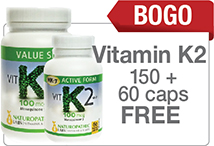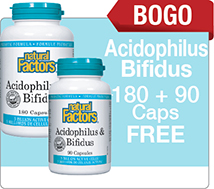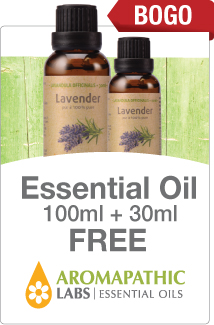Alzheimer's Disease
Updated Aug. 15th, 2019
Dementia by any other name…
Alzheimer’s and dementia are not different entities; rather Alzheimer’s is a type of dementia, the most common type, to be accurate. It is also important to note that Alzheimer’s dementia (AD) is not a disease of old age. Although it primarily occurs in individuals over the age of 65, the symptoms Alzheimer’s go far beyond what is considered to be a ‘normal’ cognitive decline associated with aging.
There is also a subset of the AD population that will develop the disease in their 40’s or 50’s, this is typically referred to as early onset or young onset Alzheimer’s. Alzheimer’s progression has be divided into stages; Pre-dementia, Early, Moderate and Advanced. Alzheimer’s does eventually lead to death.
Symptoms
Alzheimer’s is usually a diagnosis of exclusion. Other forms of dementia, stroke, arteriosclerosis and stress must be ruled out before a diagnosis of AD can be made. Symptoms usually begin with short-term memory loss, often accompanied by fatigue and depression. Initially AD sufferers have trouble remembering names and frequently lose valuable objects. Symptoms progress to confusion, disorientation, difficulty in speaking and coordinating behavior and personality changes, often including both physical and emotional outbursts. As the disease further progresses these individuals will have trouble dressing, bathing and toileting by themselves. Sleep patterns typically change, as they have a hard time distinguishing between day and night. Eventually AD sufferers lose the ability to carry on a conversation or control movement.
What causes Alzheimer’s Dementia
What we do know about Alzheimer’s is that symptoms are caused by atrophy or death of brain cells. What causes this death? At the moment, we can only speculate. Sadly, research has yet to find any conclusive results. Clinical trials are showing inconsistent and inconclusive results. Some of the more well-developed theories include genetic predisposition, environmental toxicity (aluminum, mercury, silicon, ammonia), autoimmune disorders and nutritional deficiencies. Some aspects of lifestyle, outside of diet, have also warranted further investigation.
Plaques and Tangles
One commonality in most all Alzheimer’s patients is the observation of plaques and tangles in the brain. Plaques are deposits of a protein fragment, called beta amyloid, that builds up in the spaces between the nerve cells. Tangles are twisted fibers of another protein, called tau protein. These build up inside the cells. Both plaques and tangles develop normally as we age, but they are seen much more profoundly in Alzheimer’s sufferers and in predictable patterns, first appearing in areas of the brain that control memory and spreading to other areas from there.
Delaying disease onset and progression
Although we need to be very cautious when using the term treatment, there are some promising findings in terms of delaying AD progression. Epidemiological studies have proposed relationships between certain modifiable factors, such as diet, cardiovascular risk, natural health products, or intellectual activities among others, and a population's likelihood of developing AD.
Eat right and supplement for your brain
Antioxidants such a ginkgo biloba, vitamins E and C, as well as CoQ10, phosphatidyl serine, DHA and EPA from fish oil, lecithin and vinpocetine, all play an important role in cognitive function and brain health. Making sure to eat a well rounded diet, rich in these items, or supplementing with these specific nutrients when necessary may help to both protect against the development and/or slow the progression of AD and age related cognitive decline.
Exercise your brain!
The way we live our lives and the activities that we do can help to decrease Alzheimer’s risk. Regular and supportive social interaction as well as exercise are lifestyle elements that improve quality of life while also reducing risk of developing Alzheimer’s. Cognitive Reserve Theory, the theory that certain activities create a cognitive reserve through greater neural functioning efficiency which delays onset of brain diseases and manifestations of dementia, points to some ways in which people can reduce their Alzheimer’s risk. Intellectual pursuits such as playing board games and puzzles, reading and playing musical instruments may reduce risk and support efficient neural functioning. Even learning a second language later in life can be beneficial.
MCT and Alzheimer’s
One possible cause of degenerating brain function has to do with nutritional status of the brain, itself - more specifically, our brain’s ability to utilize glucose. There is some research to suggest that individuals with Alzheimer’s are no longer able to use glucose as a primary fuel source, and therefore the brain is literally malnourished and begins to atrophy or die. Medium chain triglycerides (MCT’s), particularly high in non-hydrogenated virgin coconut oil, are one possible solution. MCT’s, or more accurately ketones, the end product of MCT metabolism, may be used as an alternative to glucose for energy, preventing starvation and deterioration of brain cells. Follow link to learn more about the health benefits of MCT.
The heavy metal hypothesis
Some believe that certain metals or environmental toxins, may play a huge role in AD development and progression. Aluminum and Mercury are among a number of brain “toxins’ that have been receiving a lot of attention. Fortunately, there are ways to reduce your exposure. Avoid using aluminum in cooking and food preparation (foil, utensils, cookware), cut out ‘pop’ or cola, especially from aluminum cans. Read labels and be cautious of antiperspirants and antacids that contain significant levels of aluminum. Mercury exposure, especially high in individuals who still have mercury dental fillings, should also be reduced or eliminated. Twice a year, give your body a break with a 2-3 week detox, which includes eating organic to reduce toxic exposure. Take a look at our article on heavy metal toxicity for more information and methods of treatment.























My husband has been diagnosed with Alzheimer in 2016. My husband faced many difficulties and was in several depression, Trouble understanding visual image, aggression,so many. This thing happened to him in very crucial stage of our life.
Hello Finlay,
We are sorry to hear about your husband's health concerns. We're glad you found this article helpful and hope he finds a good prognosis from your health care practitioner with some of the supplements suggested. If you have any questions, please reach out, our team is always happy to help.
Have a healthy day!
Great info in this article by National Nutrition . There are so many nutrients that can somewhat help this devastating disease, however, the one fundamental necessity is to keep the mind active with playing games, crosswords etc.
Hello ALK,
Indeed, keeping the mind active, will also keep it strong and healthy!
Alzheimers is an extremely scary condition. Losing your memory and ability to live a normal life is absolutely terrifying. Prevention is key but also the fact that so little is still known about this condition is quite frustrating. Alzheimers seems to be a growing concern in North America and you have to wonder if it may be associated with dietary factors that are consistent in a typical North American diet. More research needs to be done and soon!
Hello, Rose With Thorns,
Indeed, knowing how to support your cognitive health to potentially prevent cognitive decline is great. We're glad this article was insightful and that you could learn some natural ways to protect your brain. If you'd like to find some healthy recipes to add more whole foods to your diet, check out our recipe page: https://www.nationalnutrition.ca/articles/healthy-recipes/
Brain excericise and healthy diet are so, so, so important for continued cognitive vitality in older age. Love how you mention sneaky sources of heavy metals and the biannual detox sounds like a great idea (I am not read up on the research here, but this point seems intuitive)! Glad you have a Detox 101 article for guidance in this area :)
Hello, Rachel,
Thank you for your comment, glad you enjoyed this article. Indeed, detoxing heavy metals and other toxins can take the toxin load off your body and provide better health. We have a few articles on detoxification, check some out here: https://www.nationalnutrition.ca/articles/health-concerns/detoxification/
Have a healthy day!
Alzheimer's disease is of paramount importance in today's society due to its devastating impact on individuals, families, and healthcare systems. This progressive neurodegenerative disorder affects memory, thinking, and behavior, gradually robbing individuals of their independence and personality. As the world's population ages, Alzheimer's poses a significant public health challenge. The economic burden of providing care for those affected is substantial, and the emotional toll on caregivers is immense.
Addressing Alzheimer's is crucial not only for the affected individuals but also for society as a whole. Advancements in research and understanding of the disease are essential to develop effective prevention strategies, early detection methods, and potential treatments. Additionally, raising awareness about the disease and reducing the associated stigma is vital for promoting early diagnosis and access to support services.
Investing in Alzheimer's research and support is essential to alleviate suffering and improve the quality of life for millions of people worldwide. By prioritizing Alzheimer's disease, we can strive towards a future where prevention, effective treatments, and compassionate care are readily available to those affected by this devastating condition.
Hello Nathaniel,
It's nice to see that you had some great takeaways from this article. Alzheimer's is a very difficult disease to both live with and for the individuals loved ones. While there aren't any treatments, there are natural ways to prolong its onset and support your cognitive health. Learn more about the supplements recommended in this article here: https://www.nationalnutrition.ca/articles/supplements/
Stay healthy & well.
Will chelation help clean up the brain? It should remove heavy metals and open blood vessels wider? Has anyone tried this method yet? Should you also be,on blood thinners? Has anyone ever recovered? Help me!
Hello Kelly,
Thank you for your message.
Regarding chelation's potential to "clean the brain" and remove heavy metals from the central nervous system, there is limited evidence to support these claims, though research is ongoing.
The biggest issue is that the brain is protected by the blood-brain barrier, which restricts the entry of many substances, including certain chelating agents. As a result, the removal of heavy metals from the brain through chelation therapy may not be as straightforward as it is in other parts of the body. If you are interested in investigating this further, I suggest you contact a qualified Naturopathic Physician with experience in chelation therapy, who should be able to provide case-specific advice. You can find a list of qualified naturopath's here: https://mycanadiannaturopath.ca
Have a healthy day.